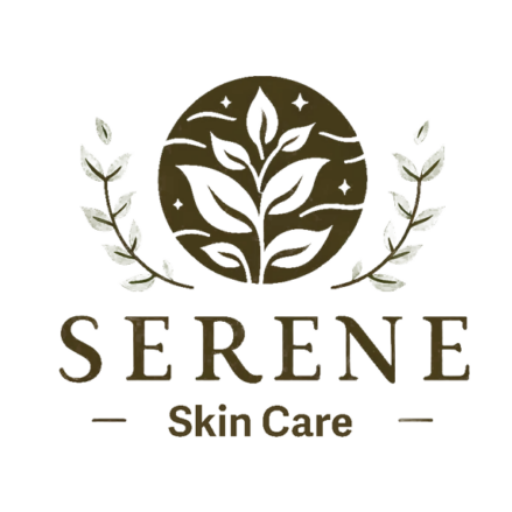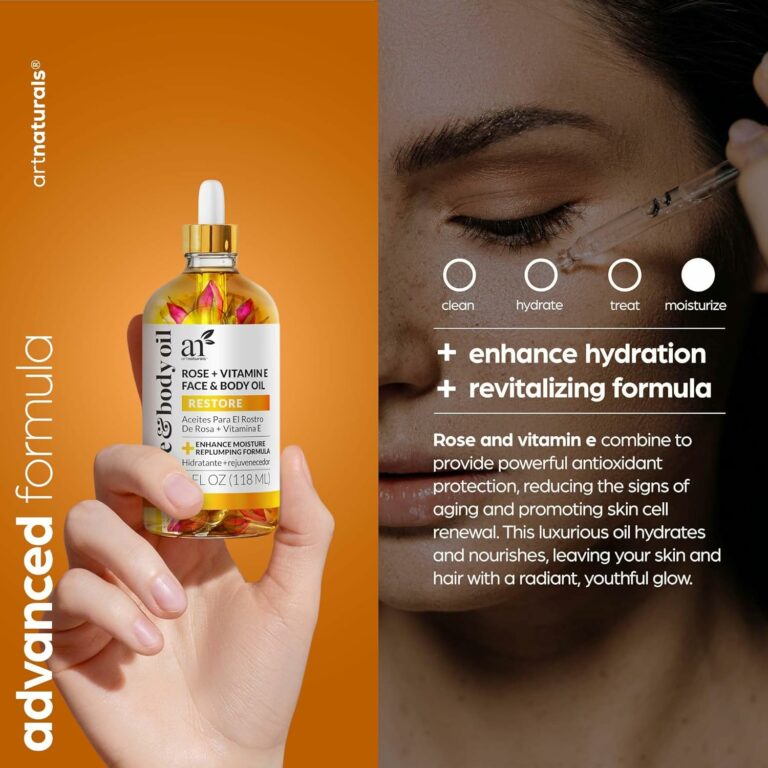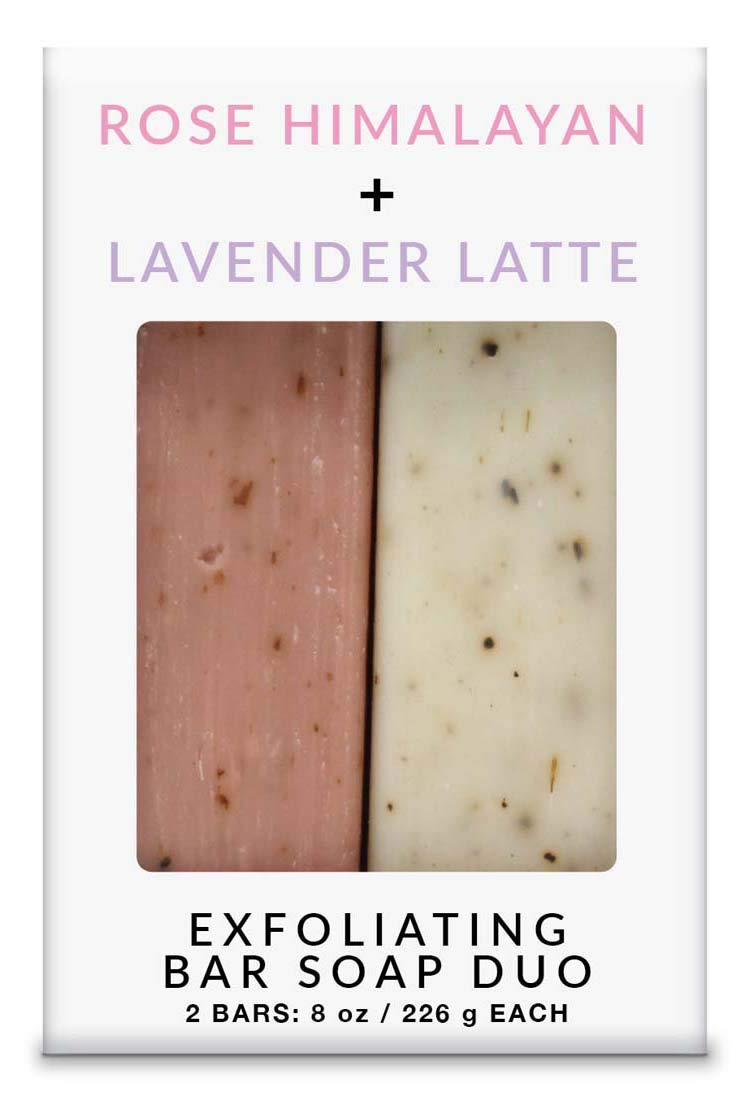Fermented Ingredients in Skincare: What You Need to Know is a must-read article for anyone curious about the latest skincare trends. With a friendly and approachable tone, the article dives into the world of fermented ingredients and their potential benefits for our skin. From explaining the science behind fermentation to highlighting popular fermented skincare products, this article has all the information you need to understand and incorporate fermented ingredients into your skincare routine. Get ready to uncover the secrets behind this skincare revolution!
What are fermented ingredients?
Definition of fermented ingredients
Fermented ingredients in skincare refer to the use of natural substances that have undergone a process called fermentation. Fermentation is a metabolic process in which microorganisms, such as bacteria or yeast, break down complex compounds into simpler substances. This process results in the production of beneficial byproducts that can enhance the effectiveness and bioavailability of the ingredients.
Examples of fermented ingredients in skincare
There are various fermented ingredients used in skincare products that offer numerous benefits for the skin. Some common examples include fermented plant extracts like green tea or licorice root, fermented oils such as rosehip or argan oil, fermented probiotics like lactobacillus or bifidobacterium, fermented fruit and vegetable juices like pomegranate or cucumber, and fermented teas such as kombucha or black tea.
Benefits of fermented ingredients in skincare
Increased bioavailability of nutrients
One of the significant advantages of using fermented ingredients in skincare is the increased bioavailability of nutrients. During the fermentation process, the microorganisms break down complex molecules into simpler forms that the skin can easily absorb and utilize. This enhanced bioavailability allows the skin to receive a higher concentration of beneficial nutrients, promoting healthier and more radiant skin.
Enhanced effectiveness of active ingredients
Fermented ingredients also have the ability to enhance the effectiveness of active ingredients in skincare products. The fermentation process can increase the concentration and potency of active compounds, making them more potent and efficient in delivering their intended benefits to the skin. This means that skincare products containing fermented ingredients can provide more noticeable and visible results.
Strengthened skin barrier
The skin barrier is responsible for protecting the skin from external aggressors and maintaining its overall health and hydration. When the skin barrier is compromised, it can lead to various skin issues such as dryness, sensitivity, and acne. Fermented ingredients help strengthen the skin barrier by promoting the production of ceramides, which are essential lipids that reinforce the skin’s protective layer. This fortification helps prevent moisture loss and creates a healthier environment for the skin to thrive.
Balancing skin pH
The pH level of the skin plays a crucial role in maintaining its health and function. The skin’s natural pH is slightly acidic, around 5.5, which helps to keep harmful bacteria and pathogens at bay. However, various factors can disrupt this balance and lead to issues like acne, irritation, or dryness. Fermented ingredients can help restore and balance the skin’s pH level, bringing it back to its optimal state and promoting a healthier complexion.
Gentler on sensitive skin
Many individuals with sensitive skin struggle to find skincare products that do not cause irritation or discomfort. Fermented ingredients can be a game-changer for those with sensitive skin. The fermentation process breaks down the complex compounds into simpler forms, making them gentler on the skin. This makes skincare products with fermented ingredients more tolerable for sensitive skin types, reducing the risk of adverse reactions.
Different types of fermented ingredients used in skincare
Fermented plant extracts
Fermented plant extracts are derived from various plants, herbs, or botanical sources that have undergone the fermentation process. These extracts offer a wide range of benefits for the skin, including antioxidant protection, soothing properties, and hydration. Some popular fermented plant extracts used in skincare include green tea, licorice root, ginseng, and chamomile.
Fermented oils
Fermented oils are created by fermenting various plant-based oils, such as rosehip oil, argan oil, or jojoba oil. The fermentation process enhances the potency and efficacy of these oils, making them more beneficial for the skin. Fermented oils are known for their moisturizing, nourishing, and anti-aging properties, helping to improve skin texture, promote elasticity, and reduce the appearance of fine lines and wrinkles.
Fermented probiotics
Probiotics are beneficial bacteria that promote a healthy balance of microorganisms on the skin’s surface. When these probiotics are fermented, their benefits are amplified. Fermented probiotics in skincare products help strengthen the skin’s natural defense system, prevent the growth of harmful bacteria, and promote a healthier skin microbiome. They can also improve the skin’s barrier function, reduce inflammation, and calm irritated skin.
Fermented fruit and vegetable juices
Fermented fruit and vegetable juices offer a wealth of vitamins, minerals, and antioxidants to the skin. These juices are typically derived from fruits and vegetables like pomegranate, cucumber, papaya, or tomato, which are then fermented to amplify their potency. Fermented fruit and vegetable juices provide nourishment, hydration, and brightening effects to the skin, resulting in a more youthful and radiant complexion.
Fermented teas
Teas, such as kombucha or black tea, can also undergo the fermentation process to become even more beneficial for the skin. Fermented teas are rich in antioxidants and polyphenols, which help protect the skin from oxidative stress, environmental damage, and premature aging. They also have anti-inflammatory properties that soothe and calm irritated skin, and their natural acids can gently exfoliate the skin, promoting a smoother and brighter appearance.
The fermentation process
Explanation of the fermentation process
The fermentation process involves the breakdown of complex compounds into simpler forms through the activity of microorganisms. These microorganisms, such as bacteria or yeast, consume sugars or carbohydrates present in ingredients and produce byproducts such as organic acids, enzymes, vitamins, and peptides. This process alters the chemical composition of the ingredients, making them more easily absorbed by the skin and enhancing their efficacy.
Role of microorganisms in fermentation
Microorganisms play a crucial role in the fermentation process. Bacteria or yeast are responsible for breaking down the complex molecules in the ingredients into simpler, more bioavailable forms. These microorganisms produce enzymes that help break down the ingredients, as well as byproducts that contribute to the skincare benefits, such as organic acids that balance pH or peptides that promote collagen synthesis.
Common fermentation methods in skincare
There are several common fermentation methods employed in skincare to create fermented ingredients. One method is natural fermentation, where the ingredients are left to ferment naturally through exposure to air and microorganisms present in the environment. Another method is controlled fermentation, which involves the addition of specific strains of bacteria or yeast to the ingredients to create a controlled and predictable fermentation process. Manufacturers may also use advanced fermentation techniques that involve biotechnology to ensure optimal results and consistency.
Choosing the right fermented ingredients for your skin type
Considerations for dry skin
For individuals with dry skin, it is essential to focus on fermented ingredients that provide intense hydration and nourishment. Look for fermented oils, such as rosehip or argan oil, as they are rich in essential fatty acids and antioxidants that help replenish and soothe dry skin. Fermented plant extracts like green tea or chamomile can also be beneficial, as they offer calming and hydrating properties.
Considerations for oily/acne-prone skin
Those with oily or acne-prone skin can benefit from fermented ingredients that help regulate sebum production and prevent clogged pores. Look for fermented probiotics, such as lactobacillus or bifidobacterium, as they help balance the skin’s microbiome and reduce inflammation. Fermented fruit and vegetable juices like papaya or cucumber can also be beneficial, as they provide gentle exfoliation and oil control properties.
Considerations for sensitive skin
Sensitive skin requires extra caution when choosing fermented ingredients. Opt for gentle fermented plant extracts like chamomile or calendula, as they are known for their soothing and anti-inflammatory properties. Fermented probiotics such as lactobacillus can also help strengthen the skin barrier and reduce sensitivity. Always patch test new products before applying them to the entire face to ensure compatibility with sensitive skin.
Considerations for aging skin
For aging skin, fermented ingredients that offer rejuvenating and anti-aging benefits are ideal. Look for fermented oils like rosehip or argan oil, as they are rich in antioxidants and vitamins that help minimize the appearance of fine lines and wrinkles. Fermented teas such as green tea or black tea are also excellent choices, as they provide potent antioxidant protection, promote collagen synthesis, and improve skin elasticity.
Potential risks and precautions
Potential for allergic reactions
While fermented ingredients are generally well-tolerated, there is still a potential for allergic reactions, especially for individuals with sensitive skin. It is crucial to patch test products containing fermented ingredients before incorporating them into your skincare routine to check for any adverse reactions. Signs of an allergic reaction may include redness, itching, swelling, or a rash. If any of these symptoms occur, discontinue use immediately and consult a dermatologist.
Testing for sensitivity
Patch testing is an essential step to determine if your skin is sensitive or reactive to specific fermented ingredients. Apply a small amount of the product containing the fermented ingredient to a small area of clean skin, such as the inner arm or behind the ear. Leave it on for 24 to 48 hours and observe for any signs of irritation or inflammation. If no adverse reactions occur, the product is likely safe for use.
Consulting with a dermatologist
If you have any concerns or specific skin conditions, it is always wise to consult with a dermatologist before incorporating fermented ingredients into your skincare routine. A dermatologist can assess your skin type, identify any potential sensitivities or allergies, and provide tailored advice on the most suitable fermented ingredients for your skin concerns.
Avoiding overuse
While fermented ingredients can offer significant benefits to the skin, it is essential not to overuse them. Incorporate fermented products gradually into your skincare routine, starting with a low concentration and frequency of use. Overusing fermented ingredients or combining multiple fermented products can potentially overwhelm the skin, leading to irritation or sensitization. Listen to your skin’s needs and adjust your routine accordingly.
How to incorporate fermented ingredients into your skincare routine
Choosing products with fermented ingredients
When incorporating fermented ingredients into your skincare routine, start by selecting skincare products that contain these beneficial ingredients. Look for products such as serums, moisturizers, essences, or masks that list fermented ingredients in their formulation. Read product labels and ingredient lists carefully to ensure the presence of fermented extracts, oils, probiotics, or other fermented substances.
Patch testing new products
Before applying a new skincare product with fermented ingredients to your entire face, it is crucial to perform a patch test. Apply a small amount of the product to a small area of clean skin, such as the inner arm or behind the ear, and observe for any adverse reactions for 24 to 48 hours. If no signs of irritation or sensitivity occur, the product is likely safe to use on your face.
Start with a low concentration
When first starting to use fermented ingredient products, it is advisable to begin with a low concentration. This approach allows your skin to adjust gradually to the new ingredients while minimizing the risk of potential adverse reactions. Starting with lower concentrations also gives you the opportunity to increase the dosage gradually as you assess your skin’s tolerance and response.
Frequency of use
The frequency of using skincare products with fermented ingredients will depend on your skin’s needs and tolerance. Some individuals may benefit from daily use, while others may find it more suitable to incorporate these products into their routine 2-3 times per week. Pay attention to how your skin responds and adjust the frequency accordingly. It is essential to give your skin time to rest and recover between product applications.
Top skincare products with fermented ingredients
Product A
Product A is a hydrating serum formulated with fermented plant extracts, such as green tea and licorice root. This serum provides antioxidant protection, brightens the skin, and enhances moisture retention. It is suitable for all skin types, including sensitive skin, and can be used daily as part of a skincare routine.
Product B
Product B is a nourishing moisturizer enriched with fermented oils like rosehip and argan oil. This moisturizer helps improve skin texture, reduce the appearance of fine lines and wrinkles, and replenish lost hydration. It is best suited for dry or aging skin and can be used both in the morning and evening.
Product C
Product C is an exfoliating mask infused with fermented fruit and vegetable juices, such as pomegranate and cucumber. This mask gently exfoliates dead skin cells, tightens pores, and promotes a brighter complexion. It is suitable for oily or acne-prone skin and can be used 1-2 times per week for optimal results.
DIY skincare recipes using fermented ingredients
DIY recipe 1: Fermented rice water toner
Ingredients:
- 1 cup of rice
- 2 cups of water
- 1 tablespoon of fermented plant extract (green tea or chamomile)
Instructions:
- Rinse the rice thoroughly under running water to remove any impurities.
- Place the rinsed rice in a glass container and add the water.
- Cover the container and let it sit at room temperature for 24 to 48 hours to allow fermentation to occur.
- After fermentation, strain the mixture to remove the rice grains.
- Add the fermented plant extract to the rice water and mix well.
- Transfer the toner to a clean bottle or container for storage.
- Apply the fermented rice water toner to cleansed skin using a cotton pad or by gently patting it into the skin.
- Follow with your regular skincare routine.
DIY recipe 2: Fermented honey face mask
Ingredients:
- 2 tablespoons of raw honey
- 1 tablespoon of fermented probiotic yogurt
- 1 teaspoon of fermented fruit juice (papaya or pineapple)
Instructions:
- In a small bowl, combine the raw honey, fermented probiotic yogurt, and fermented fruit juice.
- Mix well until the ingredients are thoroughly blended.
- Apply the mixture to clean, dry skin, avoiding the eye area.
- Leave the mask on for 15-20 minutes to allow the fermented ingredients to work their magic.
- Gently rinse off the mask with warm water and follow with a moisturizer.
- Use this fermented honey face mask once or twice a week for a nourishing and brightening boost to your skincare routine.
DIY recipe 3: Fermented rosehip oil serum
Ingredients:
- 2 tablespoons of rosehip oil
- 1 tablespoon of fermented rosehip seed extract
- 5 drops of vitamin E oil
Instructions:
- In a small glass bottle, combine the rosehip oil, fermented rosehip seed extract, and vitamin E oil.
- Close the bottle tightly and shake well to ensure thorough mixing of the ingredients.
- Apply a few drops of the fermented rosehip oil serum onto clean, dry skin.
- Gently massage the serum into the skin using upward motions until fully absorbed.
- Allow the serum to penetrate the skin for a few minutes before applying any additional skincare products.
- Use this fermented rosehip oil serum once or twice daily for nourished, radiant skin.
Conclusion
Incorporating fermented ingredients into skincare has become increasingly popular, and for a good reason. The benefits of fermented ingredients in skincare range from increased bioavailability of nutrients to enhanced effectiveness of active ingredients and strengthened skin barrier. Different types of fermented ingredients, such as plant extracts, oils, probiotics, fruit and vegetable juices, and teas, offer unique benefits for various skin concerns.
Understanding the fermentation process, the role of microorganisms, and the different fermentation methods helps us make informed choices when selecting fermented ingredient products. It is important to consider your skin type and specific concerns to choose the right fermented ingredients for your skincare routine. Taking precautions, such as conducting patch tests and consulting with a dermatologist if necessary, can help avoid potential risks.
Incorporating fermented ingredients into your skincare routine can be done by choosing products that contain fermented extracts, oils, probiotics, or other fermented substances. When starting, begin with low concentrations and gradually increase as tolerated. Frequency of use should be tailored to your skin’s needs and tolerance.
There are also various skincare products available that already contain fermented ingredients, such as hydrating serums, nourishing moisturizers, or exfoliating masks. Additionally, you can explore DIY skincare recipes using fermented ingredients, like fermented rice water toner, fermented honey face mask, and fermented rosehip oil serum.
In conclusion, incorporating fermented ingredients into your skincare routine can be a beneficial addition for achieving healthier, more radiant skin. However, it is essential to conduct individual research, experiment, and listen to your skin to find the most effective and suitable fermented ingredients that work best for you.






